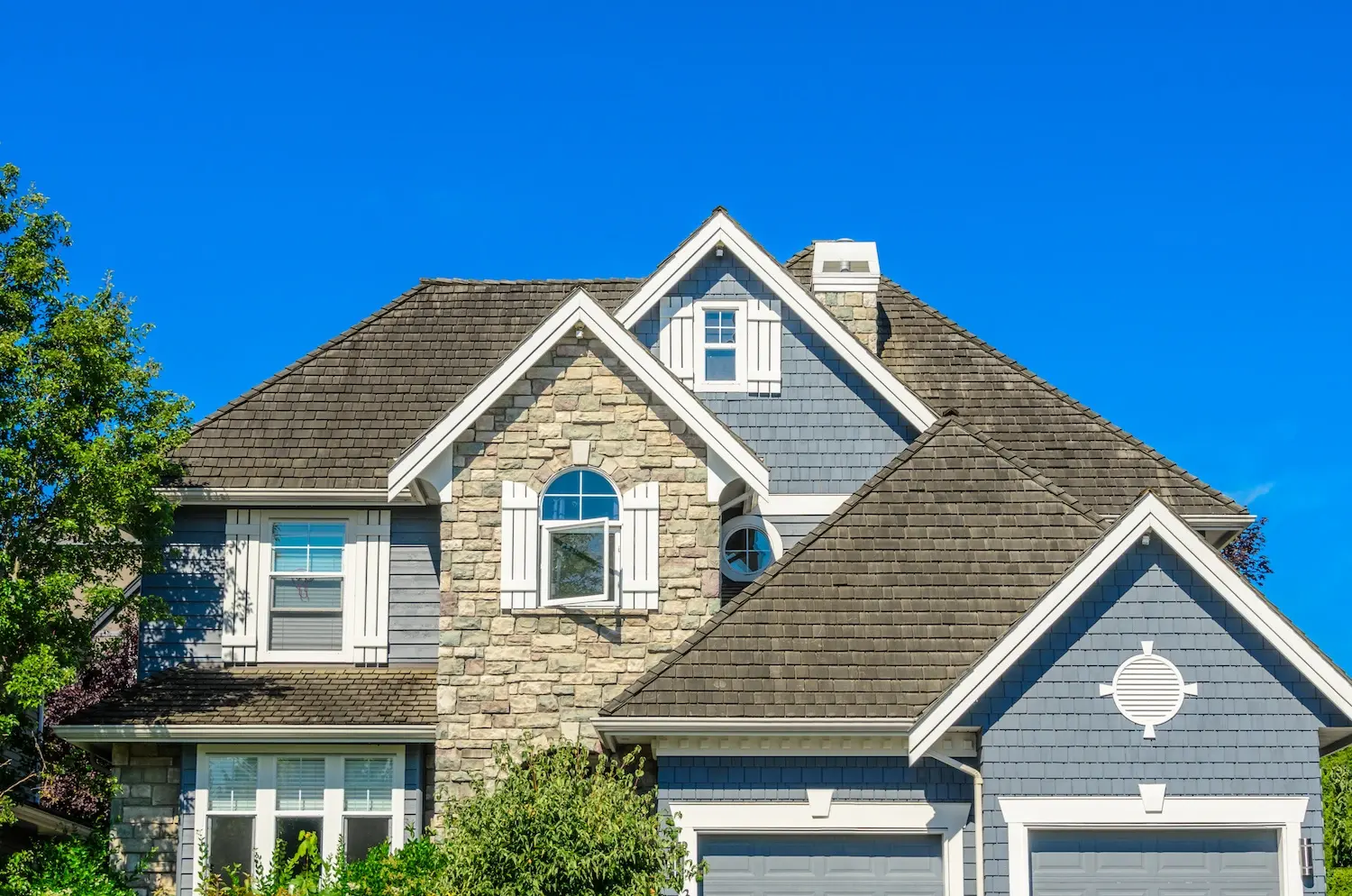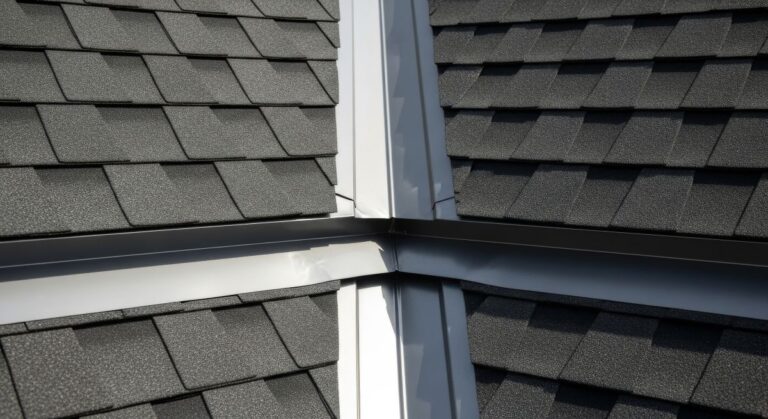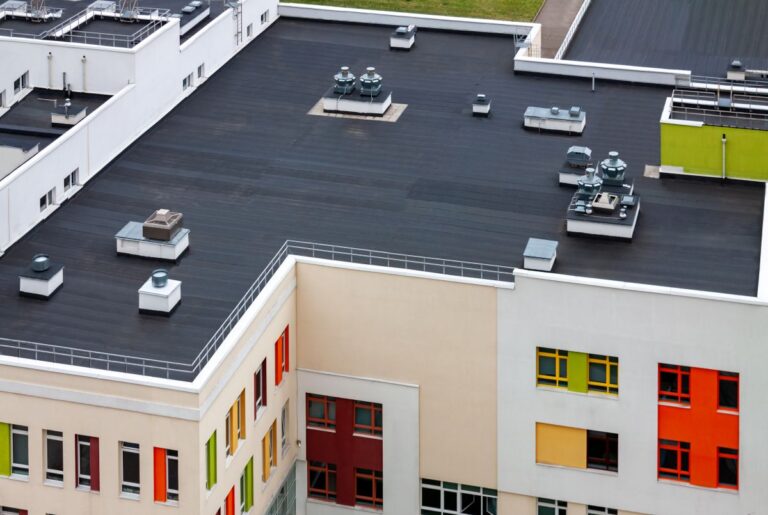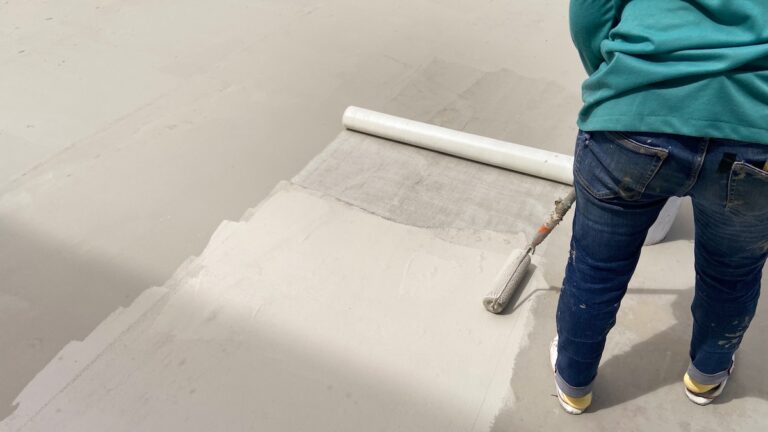Choosing the right roofing material for your home is a significant decision, both aesthetically and financially. Among the various options available, tile roofing stands out for its:
- Durability
- Elegance
- Long-term benefits
This blog will help you understand everything you need to know about tile roof cost, including styles, pros and cons, maintenance, and return on investment (ROI).
What is Tile Roofing?
Tile roofing has been used for centuries and is known for its beauty and longevity. Made from materials like clay, concrete, and slate, tile roofs are designed to be durable and weather-resistant. They come in various shapes, sizes, and colors, allowing homeowners to choose a style that complements their home’s architecture.
Different Styles of Tile Roofing
Tile roofing can be customized to your particular needs, aesthetic, and climate. Here are a few different styles of tile roofing to consider.
1) Clay Tiles
Appearance: Traditional and elegant, often seen in Mediterranean and Spanish-style homes.
Durability: Can last up to 100 years with proper maintenance.
2) Concrete Tiles:
Appearance: Versatile, can mimic wood shakes, slate, or other materials.
Durability: Typically lasts 50-60 years.
3) Slate Tiles:
Appearance: Luxurious and sophisticated, available in various shades of gray, green, purple, and black.
Durability: Can last over 100 years, making it one of the most durable roofing options.
Pros and Cons of Tile Roofing
Not sure if tile roofing is right for you? Here are the pros and cons to keep in mind.
✅ Pros
- Durability: Tile roofs are extremely durable and can withstand harsh weather conditions, including heavy rain, high winds, and even hail.
- Aesthetic Appeal: With a wide range of styles and colors, tile roofs can significantly enhance the curb appeal of your home.
- Energy Efficiency: Tiles have natural thermal properties that help regulate indoor temperatures, reducing energy costs.
- Low Maintenance: Once installed, tile roofs require minimal maintenance compared to other roofing materials.
- Fire Resistance: Tile roofs are non-combustible, providing an added layer of safety for your home.
❌ Cons
- Higher Initial Cost: Tile roofing is generally more expensive upfront compared to asphalt shingles or other roofing materials.
- Weight: Tile roofs are heavy, and may require additional structural support, increasing the installation cost.
- Complex Installation: Installing a tile roof is labor-intensive and requires skilled professionals, leading to higher labor costs.
Signs You Need to Replace Your Tile Roofing System
Even though tile roofs are durable, they will eventually need replacement. Here are some signs to look out for:
- Cracked or Broken Tiles: Visible damage to tiles can compromise the roof’s integrity.
- Leaks and Water Damage: Persistent leaks or water stains on the ceiling are indicators of roof issues.
- Moss or Algae Growth: Excessive moss or algae can weaken the tiles and affect the roof’s performance.
- Sagging Roof: A sagging roofline indicates structural issues that need immediate attention.
Cost to Install a Tile Roof
Understanding the cost to install a tile roof involves several factors:
Material Costs:
- Clay Tiles: Typically range from $10 to $18 per square foot.
- Concrete Tiles: Generally cost between $9 and $16 per square foot.
- Slate Tiles:The most expensive, ranging from $20 to $30 per square foot.
- Labor Costs:Labor costs vary depending on the complexity of the installation and the roofer’s experience but typically range from $4 to $10 per square foot.
Additional Costs:
- Structural Support: Additional support may be needed for heavy tiles, costing $2,000 to $5,000.
- Removal of Old Roof:Depending on the existing roof, removal costs can range from $1 to $4 per square foot.
- Permits and Inspections: These can add another $500 to $1,000 to the total cost.
Example Cost Breakdown
For a 2,000 square foot roof:
- Material Costs: Clay tiles at $15 per square foot = $30,000
- Labor Costs: $7 per square foot = $14,000
- Additional Costs: Structural support, removal of old roof, permits, and inspections = $7,000
- Total Estimated Cost: $51,000
How Long Does a Tile Roof Last?
One of the most significant advantages of tile roofing is its longevity. Here’s a breakdown:
- Clay Tiles: Can last up to 100 years.
- Concrete Tiles: Typically last 50-60 years.
Slate Tiles: Can last over 100 years.
Maintenance Tips
- Proper maintenance can extend the lifespan:
- Regular Inspections: Conduct annual inspections to identify and address issues early.
- Cleaning: Remove debris, moss, and algae to prevent damage.
- Repairs: Repair or replace damaged tiles promptly to maintain the roof’s integrity.
ROI on a Tile Roof
Investing in a tile roof can yield significant returns, both in terms of property value and energy savings:
Increased Property Value:
A tile roof can enhance your home’s curb appeal and increase its resale value by up to 20%.
Energy Savings:
The thermal properties of tile roofs can reduce energy costs by up to 20%, leading to substantial savings over time.
Insurance Discounts:
Many insurance companies offer discounts for homes with tile roofs due to their durability and fire resistance.
Your Tile Roof Installation Experts
Tile roofing offers homeowners a durable, attractive, and long-lasting solution for their roofing needs. While the initial cost may be higher compared to other materials, the benefits and long-term savings make it a worthwhile investment. Proper maintenance ensures that your tile roof remains in excellent condition, providing protection and beauty for decades.
Ready to invest in a tile roof? Contact our expert team today for a free consultation and estimate. With our professional installation and high-quality materials, you can enjoy the many benefits of tile roofing for years to come.






